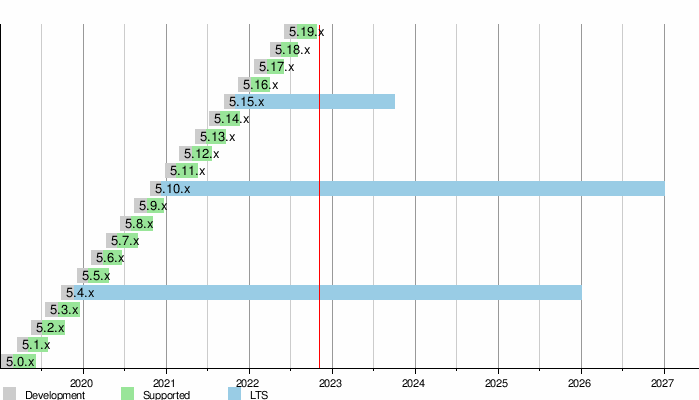AlucardNoir2 BTW, wasn't Solus supposed to be a rolling distro? I can't help but notice our "current" kernel is over half a year old and an LTS. What's the point of having an LTS and a "current" version of the kernel if they're both LTS.
Solus has a history of switching kernel versions each year when a kernel (usually the last kernel released each calendar year) is designated as LTS by Greg Kroah-Hartman and has been tested by the Solus team.

That's not unusual. Many distros (e.g. Ubuntu and derivatives) use the most recent LTS kernel for the distro LTS releases. Ubuntu 22.04 uses 5.15, for example. LTS releases are usually supported for 18 months or longer, while "in between" releases are usually supported for a few months.
Solus currently uses 5.15 LTS, but has updated the kernel numerous times during the last year. The most recent update is 5.17. Solus is likely to change the current kernel to 6.1 (scheduled for release in December) early next year, assuming that 6.1 is designated as an LTS release.
The downside to ignoring short-term (development) releases (e.g. 5.16, 5.17, 5.18, 5.19, 6.0) between LTS kernel releases is that new hardware issued after the last LTS release is sometimes not supported. That is a thorn in the side of users who purchase "the latest and greatest" hardware. The upside, however, is that LTS releases are supported for more than a few months and remain stable.
Opnions differ, but I use Solus as a daily driver, and value the stability of LTS kernel releases.
I have to say that I'm surprised that Solus uses 4.14 as the LTS release. That strikes me as odd. I would have expected 5.10, which is supported through 2027. But I don't know the reasoning, so I'm not second-quessing.